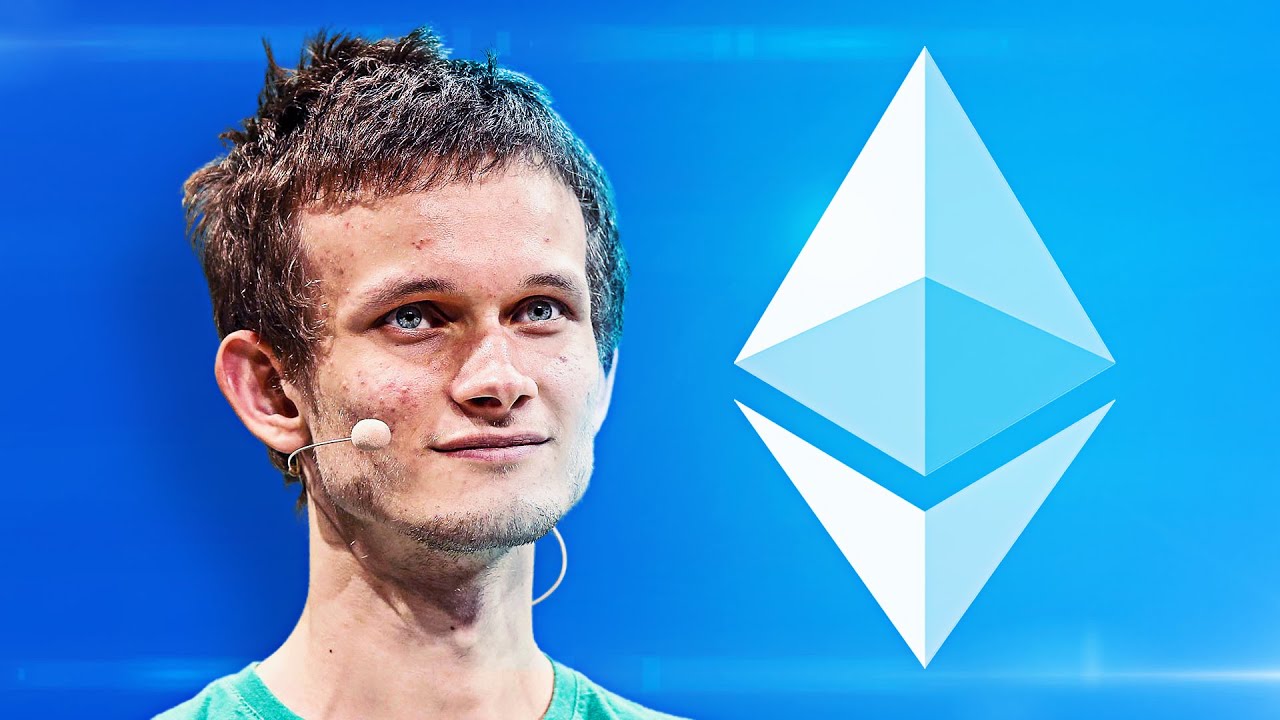Introduction
Vitalik Buterin is a name that is synonymous with the creation of Ethereum, one of the most significant technological advancements of the 21st century. Born on January 31, 1994, to Russian parents in Kolomna, Russia, Buterin showed early signs of exceptional talent and intellect. His unwavering passion for technology and cryptography paved the way for the inception of Ethereum, a decentralized and open-source blockchain platform.
From a young age, Buterin displayed a keen interest in computer programming and mathematics. His voracious appetite for learning led him to immerse himself in various online communities, discussing and exchanging ideas with like-minded individuals. It was during this time that Buterin became exposed to the concept of Bitcoin, the renowned digital cryptocurrency.
Fascinated by the possibilities of blockchain technology, Buterin began envisioning a more versatile platform that could go above and beyond the functionalities of Bitcoin. This vision became the driving force behind the conception of Ethereum.
In 2013, at the age of 19, Buterin published the Ethereum white paper, outlining his revolutionary idea for a decentralized platform that could facilitate smart contracts. This groundbreaking concept drew global attention, captivating the minds of individuals from various industries.
Fast forward to 2015, Ethereum was officially launched and quickly gained prominence in the tech community. The platform’s decentralized nature and ability to facilitate self-executing smart contracts garnered widespread acclaim and adoption. Its impact reached far beyond the realm of cryptocurrencies, as Ethereum provided an innovative foundation for the development of decentralized applications (DApps) and offered new possibilities for fundraising through Initial Coin Offerings (ICOs).
Throughout his journey, Vitalik Buterin has not only demonstrated his brilliance as a tech prodigy but also a visionary with a mission to empower individuals and revolutionize the way we interact with technology. His contributions to the blockchain and cryptocurrency landscape have undeniably left an indelible mark and continue to shape the future of technological innovation.
Early Life of Vitalik Buterin
Vitalik Buterin was born on January 31, 1994, in Kolomna, Russia. Growing up in a family of engineers, Buterin’s interest in technology and computer programming was nurtured from an early age. He exhibited exceptional intelligence and a voracious appetite for learning, especially in the fields of mathematics and computer science.
At the age of six, Buterin and his family relocated to Canada, where his passion for technology continued to flourish. As a teenager, he became deeply involved in online communities, engaging in discussions and debates about various cryptographical and technological concepts.
During this period, Buterin’s interests gravitated towards cryptocurrencies, particularly Bitcoin, the first decentralized digital currency. He was captivated by the decentralized nature and the potential of blockchain technology.
Buterin’s early fascination with Bitcoin led him to explore its limitations and the possibilities of utilizing blockchain beyond a mere digital currency. This exploration ultimately became the catalyst for the creation of Ethereum.
By the time Buterin was 19 years old, he had already amassed profound knowledge and understanding of blockchain technology. In late 2013, he published the Ethereum white paper, which outlined his vision for a decentralized platform that could enable the execution of smart contracts.
Buterin’s intellectual prowess and his sheer determination to revolutionize the digital landscape caught the attention of industry professionals and enthusiasts. His ideas were met with excitement and intrigue, propelling him into the spotlight as a promising young visionary.
Despite his young age, Buterin’s reputation continued to grow, and he gained recognition as one of the most influential figures in the blockchain and cryptocurrency space. His ability to articulate complex concepts in a readily understandable manner drew people from all walks of life towards Ethereum.
Buterin’s journey towards the creation of Ethereum was marked by innovation, resilience, and an unwavering commitment to realizing his vision. His early life experiences, coupled with his insatiable curiosity, laid the foundation for the extraordinary contributions he would make to the world of technology and blockchain.
Conception of Ethereum
The conception of Ethereum began with Vitalik Buterin’s deep fascination with blockchain technology and his recognition of its potential beyond Bitcoin’s cryptocurrency functionalities. Inspired by the limitations he saw in Bitcoin, Buterin envisioned a more versatile platform that could support complex applications and smart contracts.
In late 2013, Buterin published the Ethereum white paper, which outlined his groundbreaking idea for a decentralized platform. At its core, Ethereum aimed to provide a programmable blockchain that would enable the execution of smart contracts, self-executing agreements with predefined conditions and consequences.
The Ethereum blockchain differentiated itself from other blockchain platforms by introducing a Turing-complete programming language. This meant that developers could write and deploy smart contracts on the Ethereum network, offering an unprecedented level of flexibility and functionality.
Buterin’s concept gained significant attention and sparked the interest of developers, entrepreneurs, and technology enthusiasts worldwide. The possibility of creating decentralized applications (DApps) on a blockchain platform opened up new frontiers of innovation and disruption across multiple industries.
The Ethereum Virtual Machine (EVM) served as the backbone for executing smart contracts within the network. Developers could build decentralized applications using various programming languages, taking advantage of the extensive tools and resources provided by the Ethereum ecosystem.
Furthermore, Ethereum introduced its native cryptocurrency, Ether (ETH), which served as both a fuel for executing smart contracts and a medium of exchange within the network. Ether soon gained popularity and became one of the most valuable cryptocurrencies in the world, second only to Bitcoin.
The conception of Ethereum revolutionized the blockchain landscape, providing the foundation for a new generation of decentralized applications and tokenized economies. It ignited a wave of innovation, attracting talented developers, entrepreneurs, and investors to explore the possibilities of decentralized technology.
The Ethereum network, with its robust infrastructure and expansive ecosystem, allowed for the creation of projects ranging from decentralized finance (DeFi) platforms to non-fungible token (NFT) marketplaces. Its impact extended far beyond the world of cryptocurrencies, influencing industries such as finance, supply chain management, governance, and more.
In hindsight, Buterin’s conception of Ethereum marked a pivotal moment in the evolution of blockchain technology. It opened the floodgates to decentralized innovation, empowering individuals to participate in a new paradigm that prioritizes transparency, security, and autonomy.
Launch of Ethereum
The launch of Ethereum on July 30, 2015, marked a significant milestone in the world of blockchain technology. It was the culmination of years of hard work, development, and anticipation from Vitalik Buterin and the growing Ethereum community.
With the release of the Ethereum blockchain, developers finally had a decentralized platform capable of executing smart contracts and building decentralized applications (DApps) on a scale never seen before.
One of the key features that set Ethereum apart was its ability to support a wide range of use cases through its programmable nature. Developers could leverage the Ethereum Virtual Machine (EVM) to code and execute smart contracts using various programming languages, thereby enabling the creation of complex applications with predefined conditions.
The launch of Ethereum also introduced Ether (ETH), the native cryptocurrency of the Ethereum network. Ether played a crucial role in facilitating transactions on the platform and providing incentives for developers to build and maintain the network.
Upon its release, Ethereum quickly gained traction and attracted attention from both the blockchain community and traditional industries. Developers flocked to the platform, excited by the possibilities it offered for building decentralized applications and harnessing the power of smart contracts.
The Ethereum community grew rapidly, with individuals and organizations recognizing the potential for innovation and disruption that Ethereum brought to the table. This led to a surge in decentralized applications and projects being built on the platform, ranging from decentralized finance (DeFi) protocols to tokenization of real-world assets.
The launch of Ethereum also introduced the concept of Initial Coin Offerings (ICOs), enabling startups to raise funds by issuing their own tokens on the Ethereum blockchain. This fundraising method revolutionized the traditional venture capital landscape, allowing for a more accessible and decentralized approach to funding innovative projects.
Since its inception, Ethereum has undergone several upgrades and improvements to enhance its scalability, security, and functionality. The launch of Ethereum 2.0, which aims to transition the network from a Proof of Work (PoW) to a Proof of Stake (PoS) consensus mechanism, is eagerly awaited and expected to address some of the challenges faced by the current Ethereum network.
Overall, the launch of Ethereum was a game-changer in the world of blockchain technology. It provided a platform for developers to explore and experiment with the potential of decentralized applications and smart contracts, opening up new frontiers of innovation and paving the way for a decentralized future.
Achievements and Contributions
Vitalik Buterin’s journey as the creator of Ethereum is filled with remarkable achievements and groundbreaking contributions that have shaped the blockchain and cryptocurrency landscape. His vision and technical expertise have made a lasting impact on the industry and continue to inspire innovation and progress.
One of Buterin’s notable achievements is the creation of Ethereum, a decentralized platform that introduced the concept of smart contracts and enabled the development of decentralized applications (DApps). With Ethereum, Buterin provided a programmable blockchain infrastructure that revolutionized how transactions, agreements, and applications are executed and validated.
Buterin’s invention of the Ethereum Virtual Machine (EVM) was instrumental in enabling the execution of smart contracts on a global scale. The EVM allows developers to write smart contracts using multiple programming languages, offering unparalleled versatility and functionality.
Furthermore, Buterin’s contributions to the development and advancement of blockchain technology extend beyond Ethereum. He has actively participated in various open-source projects and initiatives aimed at improving the scalability, interoperability, and security of blockchain networks.
One notable example is Buterin’s involvement in the creation of the Plasma framework. Plasma is a layer 2 scalability solution that aims to enhance the throughput and efficiency of Ethereum and other blockchain networks by enabling the creation of side chains or “child chains” that can handle a large number of transactions.
Buterin’s work on Ethereum and Plasma has earned him recognition and numerous accolades. He has been listed among the Forbes 30 under 30 in technology, awarded the World Technology Award, and received the Thiel Fellowship, among other prestigious honors.
Buterin’s contributions to the blockchain community go beyond technical advancements. He has been a vocal advocate for decentralization, privacy, and individual sovereignty in the digital age. Through his writings, interviews, and public appearances, he has educated and inspired countless individuals about the potential of blockchain technology and its role in shaping a more equitable and transparent society.
Moreover, Buterin’s commitment to fostering collaboration and inclusivity in the blockchain space is evident through his support for open-source projects and his engagement with developers, entrepreneurs, and enthusiasts around the world. He has actively encouraged dialogue and cooperation among different blockchain platforms and communities, recognizing the importance of collective effort in driving meaningful progress.
Overall, Vitalik Buterin’s achievements and contributions have positioned him as a leading figure in the blockchain and cryptocurrency industry. His innovative mindset, technical prowess, and dedication to decentralization have propelled Ethereum to become one of the most influential platforms in the world, while his advocacy for transparency and collaboration continues to inspire individuals and shape the future of blockchain technology.
Impact of Ethereum
The impact of Ethereum on the world of blockchain technology and beyond has been substantial. Since its launch, Ethereum has revolutionized various industries, introduced new paradigms of decentralized applications, and paved the way for the tokenization of assets. Its influence is felt not only in the financial sector but also in areas such as supply chain management, governance, and software development.
One of the most significant impacts of Ethereum is its role in advancing the concept of smart contracts. By enabling the execution of self-executing agreements with predefined conditions and consequences, Ethereum has opened up a wide range of possibilities for automation and trustless interactions. Smart contracts have transformed industries by eliminating intermediaries, reducing costs, and increasing transparency and efficiency in various processes.
The Ethereum platform has also played a pivotal role in the rise of decentralized finance (DeFi). DeFi encompasses various financial applications, such as lending and borrowing protocols, decentralized exchanges, and yield farming, all powered by Ethereum’s smart contract capabilities. The advent of DeFi has allowed individuals to access financial services without relying on traditional intermediaries, providing greater financial inclusivity and control.
Moreover, Ethereum has spurred the growth of a vibrant ecosystem of decentralized applications (DApps). With Ethereum’s programmable blockchain, developers have been able to create and deploy a wide range of applications that leverage the advantages of blockchain technology. From decentralized social networks to digital art marketplaces to gaming platforms, Ethereum has provided the infrastructure for innovative and decentralized solutions across multiple industries.
Furthermore, Ethereum has played a significant role in fueling the Initial Coin Offering (ICO) boom. The ability to create and issue tokens on the Ethereum blockchain has democratized fundraising, enabling startups and projects from around the world to access capital without traditional barriers. This has allowed for increased innovation, as entrepreneurs have been empowered to pursue their ideas and visions through token offerings and community support.
The impact of Ethereum has extended beyond the realm of technology. It has sparked conversations and debates about the potential of decentralization, privacy, and self-sovereignty in the digital age. Ethereum has prompted individuals, organizations, and governments to reevaluate their approaches to data security, identity verification, and trust in digital systems. It has challenged traditional structures and paved the way for a more open, transparent, and equitable future.
Additionally, Ethereum’s influence has transcended borders, with a global community of developers, entrepreneurs, and enthusiasts actively contributing to the platform’s growth and evolution. Collaboration and knowledge-sharing have been paramount, fostering a culture of innovation and continuous improvement in the blockchain space.
In summary, the impact of Ethereum cannot be overstated. From changing the way we interact with financial systems to enabling decentralized applications and fostering a global community of blockchain enthusiasts, Ethereum has reshaped how we think about technology and its potential to disrupt and improve various aspects of our lives.
Conclusion
Vitalik Buterin’s creation of Ethereum has undeniably shaped the landscape of blockchain technology and revolutionized the way we interact with digital systems. With Ethereum, Buterin introduced the concept of smart contracts and provided a decentralized platform for the development of innovative decentralized applications (DApps).
Throughout his journey, Buterin has not only showcased his technical brilliance but also demonstrated a deep commitment to decentralization, privacy, and individual sovereignty. His visionary ideas and contributions have propelled Ethereum to become one of the most influential blockchain platforms in existence.
Ethereum’s impact extends far beyond the realm of cryptocurrencies. It has transformed industries by introducing automation, reducing costs, increasing transparency, and enabling trustless interactions through the implementation of smart contracts. Ethereum’s ecosystem has given rise to decentralized finance (DeFi), allowing individuals to access financial services without traditional intermediaries and promoting financial inclusivity.
Moreover, Ethereum has fostered the growth of a vibrant community of developers, entrepreneurs, and enthusiasts, who collaborate, share knowledge, and push the boundaries of blockchain innovation. Ethereum’s programmable blockchain has enabled the creation of diverse decentralized applications that offer solutions for a wide range of industries.
The success of Ethereum has further sparked discussions about decentralization, privacy, and the future of digital systems. It has prompted individuals, organizations, and governments to reevaluate existing structures and embrace the potential of blockchain technology.
Vitalik Buterin’s achievements go beyond the development of Ethereum. His contributions to projects like the Plasma framework have pushed the boundaries of scalability and interoperability. Buterin’s dedication to open-source principles and his advocacy for collaboration have fostered a culture of innovation and progress in the blockchain community.
In conclusion, Vitalik Buterin’s creation of Ethereum and his visionary leadership have left an indelible mark on the world of blockchain technology. His creativity, technical expertise, and commitment to decentralization have paved the way for a new era of decentralized applications, smart contracts, and financial innovation. As Ethereum continues to evolve and push the boundaries of what is possible, its impact will continue to shape the future of technology and empower individuals worldwide.

























